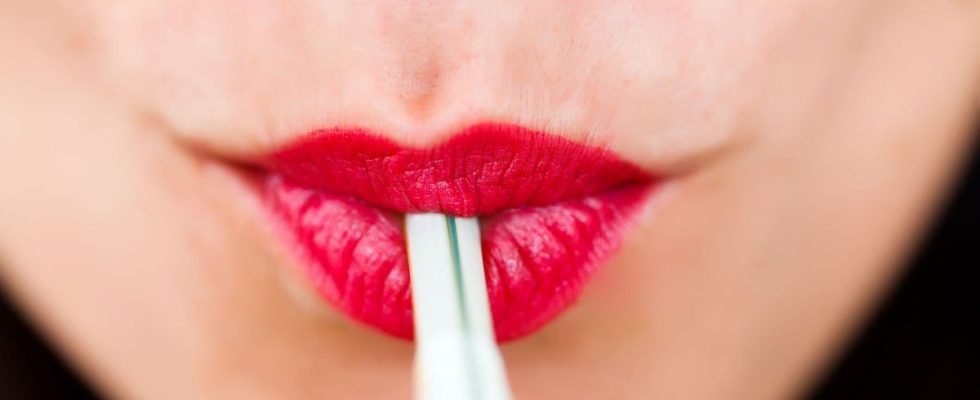Published on
Updated
Reading 2 mins.
An American neurologist has developed a straw whose shape makes it possible to exert on the diaphragm the exact pressure necessary to stop the hiccups.
“Hiccups are a respiratory reflex that causes a succession of very characteristic sound “hiccups”, can we read on the website of the Health Insurance. It is most often temporary and lasts only a few minutes or a few hours at most. But it can also be chronic and in this case, a consultation is necessary.
Uncomfortable and annoying, we try by all means to stop it when it does not pass quickly: stop breathing for several seconds, ask someone to scare us, drink water upside down… These techniques rely on the mechanism of apnea or focusing attention on something else with startle effect. Unfortunately, they are often ineffective!
A pressure of 100 centimeters of water
But a new object could perhaps put an end to all our unsuccessful attempts: a straw. But a straw like no other. It was developed by Ali Seifi, a neurologist at the University of Texas at San Antonio and probably the most cited hiccup expert in the world. Based on the observation that pressure must be exerted on the diaphragm to stop the hiccups, he developed a straw that allows you to reach precisely this pressure when it is used, i.e. 100 centimeters of water. The bottom of the straw has a very small hole while the top end is fitted with a hole big enough for drinking. To make the water rise through the straw, the user must therefore suck harder than with a conventional straw. This effort would generate a pressure of exactly 100 centimeters of water. After testing the straw on several people with hiccups, Ali Seifi claims that it stopped in 92% of cases.
The neurologist’s invention, dubbed HiccAway, was first sold in 2020 for $13.42. Ali Seifi launched a fundraising campaign in stride and co-signed an article on the subject in the famous magazine JAMA Network Open in 2021. The “HiccAway” invention is now worth $1 million.
If you frequently suffer from acute hiccups, try to identify the triggers and avoid them as much as possible:
- avoid large meals;
- reduce your consumption of soft drinks, alcohol;
- be careful not to take very hot drinks;
- during meals, do not switch from very cold food to very hot food;
- take the time to eat slowly;
- quit chewing gum…
